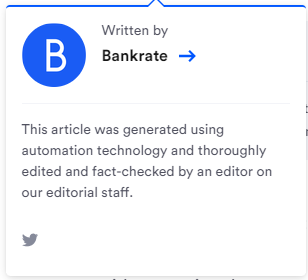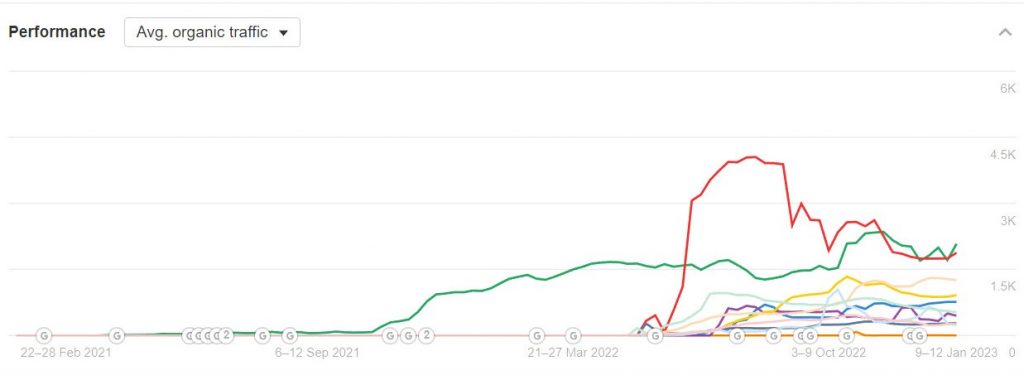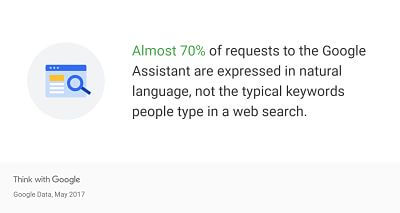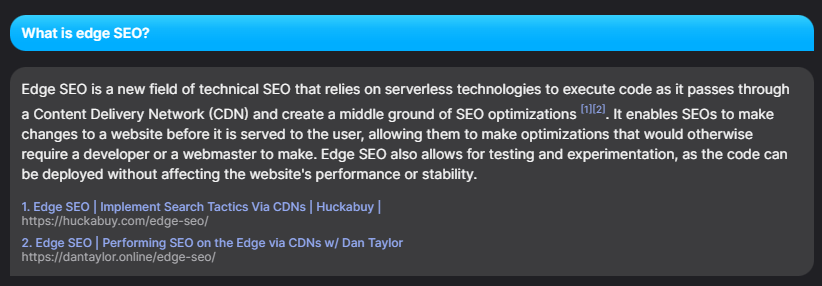A burning question in SEO right now is whether or not AI and AI-generated content potentially spells “the end” for a large part of what it is that we SEO professionals do.
In my opinion, the answer is no. AI-generated content is not yet at the point it can replace a large percentage of SEO functions.
AI and GPT3.5/4/whatever iteration we arrive at in the coming months has the potential to disrupt how we do SEO in a number of ways, these can loosely be categorized into three areas:
- The production of content.
- As an instant answer feature.
- Some functions that are usually held in the realm of being the job of the technical SEO.
For me, each comes with a varying level of impact on the SEO industry with variables being how search engines adopt and utilize it, how those selling SEO services (the input) adopt and utilize it, and how those buying SEO services (the output) handle the conundrum set out by Jim Jarmusch (good, fast, cheap).
So first let’s look at one of the more obvious threats being touted, the ability for mass-scale content production.
TLDR
- ChatGPT technology can pose a threat to content production and research.
- AI content isn’t necessarily bad, and the focus should be on the output and not the source – as it’s being integrated and used effectively in the real world now, and has been for months.
- A major threat to “SEO” as a service industry is the potential for Google/Bing ChatGPT chatbots to generate dark traffic, making it harder for reporting and ROI attribution.
- I believe the uptake of search chatbots, by consumers, will be greater than voice search as it doesn’t require a change in the physical way of searching.
AI Content/ChatGPT Generated Content
AI content itself isn’t inherently bad, AI content if anything faces more challenges and scrutiny than regular content does…
- Is it unique?
- Is it accurate?
- Does it match the tone of voice of the brand?
- Does it add any additional value or perspective to the content that already exists covering this topic?
- What is the beneficial purpose of the content?
- Has it been written for search engines, or for users?
These questions are the same regardless if it’s AI or human written. The difference is, the AI content is written by a system trained on content that already exists on the internet, doesn’t have a sense of perspective, true or false, or likely (at this point in training) has an understanding of a brand’s tone of voice.
From a Google perspective, they don’t care how content is produced, as long as it doesn’t breach their guidelines (all Danny Sullivan, aka Search Liaison on Twitter):
As said before when asked about AI, content created primarily for search engine rankings, however it is done, is against our guidance. If content is helpful & created for people first, that’s not an issue.
&&
We haven’t said AI content is bad. We’ve said, pretty clearly, content written primarily for search engines rather than humans is the issue. That’s what we’re focused on. If someone fires up 100 humans to write content just to rank, or fires up a spinner, or a AI, same issue…
&&
Our spam policies also address spammy automatically-generated content, where we will take action if content is “generated through automated processes without regard for quality or user experience”
My main theory is that the content at threat from AI is the lower-end, mass content production that goes on now. The mechanical process of cheap content being sold as a means to an end to satisfy an SEO supply contract. It’s not objective focused in terms of what the business is trying to achieve, but tied to more short-term metrics and isn’t the “best foot forward” content.
Can AI Written Content Perform?
Some companies are already adopting AI into their content – for example, bankrate.com – who use automation technology to generate a number of their articles, and then have humans edit and build upon the base.

And this approach works – as these articles generate meaningful amounts of traffic:

The BankRate.com approach also names the editor(s) and reviewer(s) of the article, so from an EEAT perspective anyone has a clear notion of who produced the article, and who has put their name to both ensuring and affirming that the contents are accurate, and not harmful or misleading (even more important in a YMYL space).
I’ve also performed a study, with more than 1,100 respondents, that shows that most people can’t tell the difference between AI-generated content and human-written content.
Search Behaviour Changes & Attribution
For me, one of the biggest issues we potentially face with the adoption of ChatGPT is attribution and searches going into a literal void.
A parallel to this is voice search.
If someone performs a voice search and your content is vocalized as the result, we don’t have a direct way of showing this – we can only make inferences from the queries found in Google Search Console.
This is because people use a more “natural” language when phrasing a query versus typing it.

The issue with this approach is that Google search also uses autocomplete, so these coherent queries we infer as being voice searches could also be “traditional” text searches formed by Google Autocomplete.
So, 5/6 years on from the ComScore quote that by 2020 40% of all searches would be voice search, we still can’t track it or attribute accurately.
I see this same issue arising with ChatGPT, as questions are answered in the Chat UI.
Now, You.com who have launched their ChatGPT YouChat beta, they do attribute sources to their answers:

Now, if this was Google – would the page referenced for my website here get an impression in Google Search Console for the query (the question asked)?
Whilst we don’t have this data for You.com, we can see how Google Analytics attributes the You.com YouChat currently:

At present, You.com YouChat comes through to Google Analytics as “direct”.
Attribution of search queries in a ChatGPT chatbot world for me is the biggest threat to SEO, especially if it turns currently visible traffic (and attributable leads and revenue) into dark traffic.
It will be interesting to see how Google and Bing handle this, and whether or not their AI chatbots cause the dark traffic problem. We know Bing is looking at launching a product, and Google is rumored to be using Deepmind’s Sparrow to launch a product in 2023.
The adoption of an AI chatbot for search I also believe will have a greater consumer uptake than voice search.
Voice search can be intrusive and is a change in physical behavior. An AI-powered search chatbot is triggered through typing, and provides a non-verbal response – the difference in user interaction between a traditional search and a chatbot search is minimal and non-invasive.